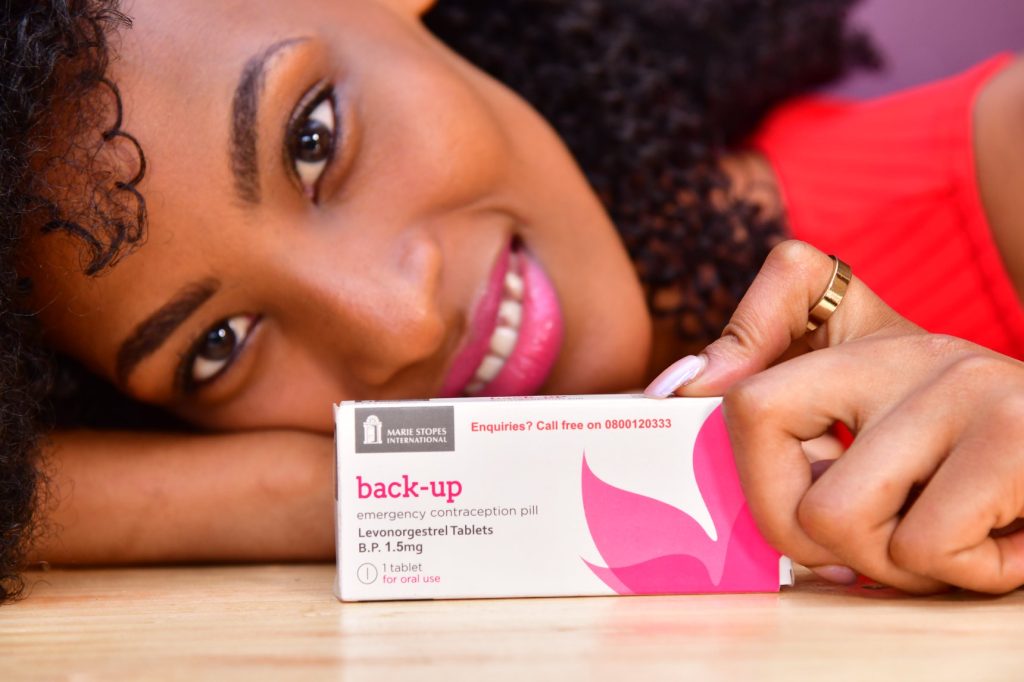If you’re scheduled for wisdom teeth removal and currently use birth control, you might have concerns about whether it’s safe to continue taking your contraceptive after the procedure. Wisdom teeth extraction is a common surgery, but like any medical procedure, it can have various effects on your body, including how you manage medications.
In this blog, we’ll explore the relationship between wisdom teeth removal and birth control use, the impact on your hormonal balance, and how to ensure that your birth control remains effective during your recovery.
Understanding Wisdom Teeth Removal
Wisdom teeth removal is a routine dental procedure to extract the third set of molars, which often cause overcrowding, infection, or impaction. Your dentist will evaluate your teeth with X-rays to determine the best approach. If the teeth are impacted (trapped beneath the gums), the removal may require an incision.
The procedure is usually performed under local anesthesia to numb the area, though general anesthesia may be used for more complex cases. After the extraction, some swelling, bruising, and discomfort are common, but pain can be managed with ice packs and prescribed medications.

Recovery typically takes a few days to a week, depending on the complexity. Post-operative care involves following instructions to avoid infection, like avoiding hard foods and rinsing with salt water. While complications are rare, follow-up visits ensure proper healing.
Removing wisdom teeth can prevent future dental issues, such as infection or alignment problems, and improve long-term oral health.
Can Birth Control Be Taken After Wisdom Teeth Removal?
Yes, birth control can generally be taken after wisdom teeth removal. However, it’s important to consider a few factors. After the procedure, your body may be under stress due to surgery and recovery, which can impact hormone levels. For some women, pain medications and antibiotics prescribed post-surgery could potentially interfere with the effectiveness of birth control pills, especially if you’re using oral contraceptives.
If you’re taking antibiotics after your wisdom teeth removal, consult with your healthcare provider about alternative forms of contraception or whether you need to use additional protection (e.g., condoms) during the recovery period. For women using non-oral birth control methods (e.g., IUDs, implants, or the birth control shot), there are generally no concerns about taking these methods after wisdom teeth removal.
Recommended: How long does it take to conceive after stopping birth control?
As always, it’s best to speak with your dentist or healthcare provider to confirm that taking contraceptives during your recovery is appropriate for your individual health needs.
Pain Medications and Their Effect on Birth Control
Pain medications, particularly certain types of prescription pain relievers like antibiotics and some strong painkillers, can affect the effectiveness of contraceptives. Here’s how:
Antibiotics
Some antibiotics, especially those like rifampin, can reduce the effectiveness of contraceptive pills by interfering with how your body processes the hormones. This can increase the risk of an unintended pregnancy. However, not all antibiotics have this effect, and most commonly prescribed ones for pain management (like amoxicillin) do not significantly affect birth control.
Painkillers (Opioids and Non-Opioids)
Non-steroidal anti-inflammatory drugs (NSAIDs) like ibuprofen and acetaminophen, which are often used for pain relief after surgery, do not affect the efficacy of birth control. Opioid pain medications (e.g., hydrocodone or oxycodone) typically do not interfere with hormonal contraceptives either, though they may have other side effects.
Precautions to Take When Combining Painkillers and Birth Control
When combining painkillers and contraceptives, it’s important to take certain precautions to ensure the effectiveness of your birth control and avoid any potential complications. Here are some key precautions:
Check for Drug Interactions
Not all painkillers interact with birth control, but some medications, especially antibiotics, can reduce the effectiveness of hormonal contraceptives. Always inform your healthcare provider about any painkillers or antibiotics you are prescribed after a procedure, so they can assess if any interactions might occur.
Recommended: Can You be on Birth Control and Donate Eggs?
Use Backup Contraception

If you’re taking antibiotics or other medications known to affect contraceptives, use a backup method (like condoms) during the course of the medication and for several days after finishing it. This will help prevent unintended pregnancy during the period of reduced contraceptive efficacy.
Avoid Overuse of Strong Painkillers
Painkillers like opioids (e.g., oxycodone or hydrocodone) may not affect contraceptives directly, but overuse can cause other health issues, such as drowsiness, dizziness, and gastrointestinal problems. Always follow the recommended dosage and only use strong painkillers when necessary.
Watch for Side Effects
Certain painkillers, particularly opioids, can cause nausea, vomiting, or other side effects. If you’re experiencing side effects that might make it harder to remember to take your birth control (like vomiting), it could reduce the effectiveness of the contraceptive. If you’re unable to keep your birth control down, speak with your healthcare provider about alternative forms of contraception.
Consult a Healthcare Provider
If you’re unsure whether your pain medication affects your birth control, consult with your healthcare provider. They can provide personalized guidance and, if needed, suggest alternative pain management options that won’t interfere with your contraceptive method.
Alternative Birth Control Options During Recovery
During recovery from a procedure like wisdom teeth removal, some women may prefer to use alternative contraceptives options to ensure continued effectiveness, especially if they’re taking medications that could interfere with hormonal contraceptives. Here are some alternative birth control options to consider during recovery:
Recommended: Creighton Method of Natural Family Planning
Barrier Methods (Condoms or Diaphragms)
Barrier methods, such as male or female condoms and diaphragms, do not interact with pain medications or antibiotics. They provide effective protection against pregnancy and sexually transmitted infections (STIs) and can be used as a temporary option during recovery.
IUD (Intrauterine Device)
The IUD is a long-term birth control method that does not require daily attention. It works by preventing sperm from reaching the egg and is effective regardless of medications you may be taking. If you already have an IUD or are considering it, it can be a reliable alternative during recovery.
Implant (Nexplanon)
The birth control implant is a small rod placed under the skin of your arm that releases hormones to prevent pregnancy. It offers long-lasting protection for up to three years and is not affected by medications taken for recovery, making it a great option during this time.
Recommended: Family Planning Options for Couples Over 35
Birth Control Shot (Depo-Provera)
The contraceptive shot is another hormone-based option that is administered every three months. Like the implant and IUD, it is not affected by antibiotics or painkillers, making it a reliable alternative for those recovering from surgery.
Emergency Contraception (Plan B)
If you’re concerned about the effectiveness of your usual birth control due to taking medications, emergency contraception (Plan B) can be used after unprotected sex to prevent pregnancy. However, it should not be used as a primary method of contraception, but rather as a backup if needed.
Natural Family Planning (NFP)
Natural family planning methods, such as tracking your fertility cycle through temperature monitoring and ovulation tests, can be used if you prefer non-hormonal methods. However, this method requires careful tracking and is less reliable than other forms of contraception.
Tips on How to Manage Both the Recovery Process and Your Birth Control Regimen
Managing both your recovery process and birth control regimen during the healing phase requires careful attention to your medications, lifestyle, and self-care. Here are some tips to help you navigate this period:
Follow Medication Guidelines
Ensure you follow the instructions provided by your healthcare provider for both your recovery medications (like painkillers or antibiotics) and your birth control. If you’re taking antibiotics that might interfere with hormonal birth control, use a backup method like condoms to ensure protection.
Recommended: 6 Family Planning Tips for Women with PCOS
Maintain Consistent Birth Control Use
Stick to your usual birth control schedule. Set reminders on your phone or use a pill organizer to ensure you don’t miss any doses, especially if you’re experiencing discomfort or side effects from recovery medications.
Monitor for Side Effects
Pain medications, antibiotics, or other post-surgery medications can cause side effects like nausea or vomiting, which could affect your ability to keep your birth control down. If you experience any issues, talk to your healthcare provider about alternative methods or solutions.
Use Backup Contraception
If you’re prescribed antibiotics or other medications that could reduce the effectiveness of your birth control, use a backup method (such as condoms) while you’re on these medications and for several days after finishing them. This provides an extra layer of protection.
Stay Hydrated and Nourished
Recovery is easier when you’re well-nourished and hydrated. Proper nutrition can also help with hormonal balance and prevent nausea or discomfort that might interfere with taking your birth control. Drink plenty of water and eat soft, healthy foods that won’t irritate your healing gums.
Rest and Relaxation

Rest is essential for healing. Stress or lack of sleep can affect hormone levels and your general well-being, which may indirectly impact your contraception regimen. Try to get enough sleep and manage stress during this period.
Recommended: How To Choose The Right Birth Control Method For You
Communicate with Your Healthcare Providers
If you’re concerned about any interactions between your contraception and recovery medications, or if you’re unsure about alternative birth control options during recovery, don’t hesitate to reach out to your healthcare provider. They can offer personalized advice and adjustments to your plan.
Plan for Follow-Up Appointments
Ensure you attend any follow-up appointments for both your recovery and your birth control. Your dentist or surgeon may want to monitor your healing, and your healthcare provider can help ensure your birth control method is still working effectively during this time.
Conclusion
Managing both the recovery process and your birth control regimen during the healing phase is essential to ensure both effective healing and continued contraception. By following the prescribed medication guidelines, being mindful of potential interactions, and maintaining consistent birth control use, you can navigate the recovery period with confidence. Using backup contraception when necessary, staying hydrated, and taking care of your overall well-being will support your recovery and help you maintain birth control effectiveness. Always consult with your healthcare providers for personalized guidance and adjustments to ensure that your healing process and birth control method work seamlessly together.
